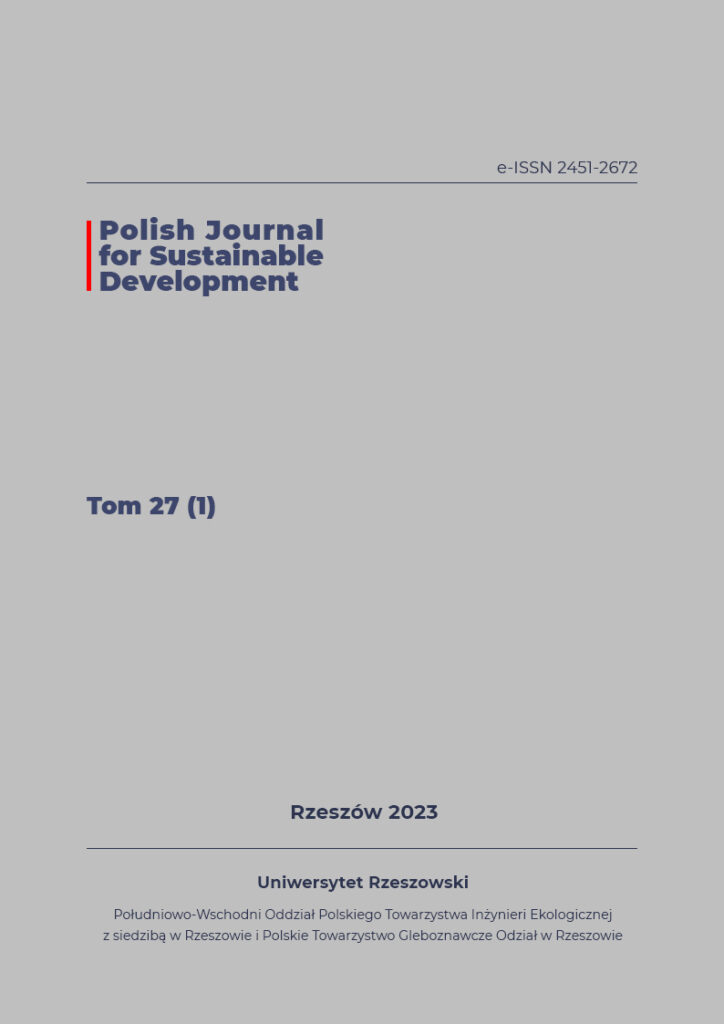GMO from the perspective of Judaism
DOI:
https://doi.org/10.15584/pjsd.2023.27.1.8Keywords:
genetically modified foods, ethics, JudaismAbstract
The last decades have been a time of spectacular development of modern technologies, including those in the food production sector. As a result of the transfer of genes from one organism to another, it has become possible to create ever new varieties of genetically modified plants and animals. These achievements of modern science do not go unnoticed in religious circles, especially in the religious tradition of Judaism with its specific prohibitions on the consumption of certain products of plant and animal origin and the norms regulating the cultivation or preparation of food. Jewish law distinguishes the species of animals that Jews can eat, i.e. kosher ones, from those that they cannot eat, i.e. non-kosher (all plants are considered kosher). This environment also raises issues related to the cultivation and consumption of genetically modified plants and animals, including those with genetic material artificially transferred from other plants or animals considered in that tradition to be non-kosher. Although there is no consensus in Judaism, its mainstream tends to accept genetic technologies for altering organisms and the consumption of modified foods. Jewish decision-makers in the field of law and ethics base their mild stance on the general principle that anything not explicitly forbidden in the Bible and the Talmud is accepted as permitted.
Downloads
References
Assadi D. 2003. Do Religions Influence Customer Behavior? Confronting Religious Rules and Marketing Concepts. Cahiers du CEREN. 5. 2-13.
Druker S.M. 1997. Are Genetically Engineered Foods in Accord with Jewish Law?. [dok. elektroniczny: http://www.ogmdangers.org/enjeu/philosophique/religion/Halakha.html, data wejścia: 16. 02. 2023].
Eidelman J.M. 2000. Be Holy for I Am Holy: Food, Politics, and the Teaching of Judaism. Journal of Ritual Studies. 14 (1). 45-51.
Feeley-Harnik G. 1994. The Lord’s Table: The Meaning of Food in Early Judaism and Christianity. Smithsonian Institution Press. Washington/London.
Galun E. 2011. Genetically Manipulated Plants: Ethical and Religious Issues. AgBioWorld. [dok. elektroniczny: http://www.agbioworld.org/biotech-info/religion/galun.html, data wejścia: 16. 02. 2023].
Gardner G.E. 2014. Let Them Eat Fish: Food for the Poor in Early Rabbinic Judaism. Journal for the Study of Judaism. 45. 250-270.
Kraemer D. 2005. Problematic Mixings: Foods and Other Prohibited Substances in Rabbinic Legislation. Jewish Theological Seminary of America. 8 (1). 35-54.
Omobowale E.B. Singer P.A., Daar A.S. 2009. The Three Main Monotheistic Religions and GM Food Technology: an Overview of Perspectives. BMC International Health and Human Rights. 18 (9). [dok. elektroniczny: https://bmcinthealthhumrights.biomedcentral.com/articles/10.1186/1472-698X-9-18, data wejścia: 16. 12. 2023].
Rosenblum J.D. 2010. Food and Identity in Early Rabbinic Judaism. Cambridge University Press.
Sered S.S. 1988. Food and Holiness: Cooking as a Sacred Act among Middle-Eastern Jewish Women. Anthropological Quarterly. 61 (3). 129-139.
Wolff A. 2001. Jewish Perspectives on Genetic Engineering. Jewish Environmental Perspectives. 2. [dok. elektroniczny: http://www.jcpa.org/art/jep2.htm, data wejścia: 16. 02. 2023].
Yoskowitz J. 2012. American Processed Kosher. Gastronomica. 12 (2). 72-76.
Zellentin H. 2013. Review: Food and Identity in Early Rabbinic Judaism Jordana D. Rosenbluma. Journal for the Study of Judaism. 44. 123-125.
Zoloth L. 2009. When You Plow the Field Your Torah Is with You”: Genetic Modification and GM Food in the Jewish Tradition(s). [w:] Acceptable Genes? Religious Traditions and Genetically Modified Foods. C.G. Brunk, H. Coward (red.). Sunny Press. New York. 81-113.
Downloads
Published
Issue
Section
License
Copyright (c) 2023 Polish Journal for Sustainable Development

This work is licensed under a Creative Commons Attribution-NonCommercial-NoDerivatives 4.0 International License.


